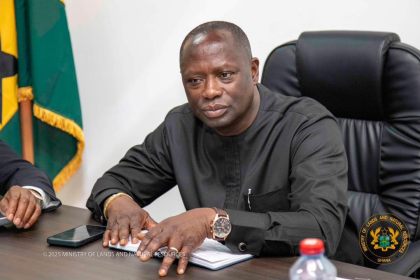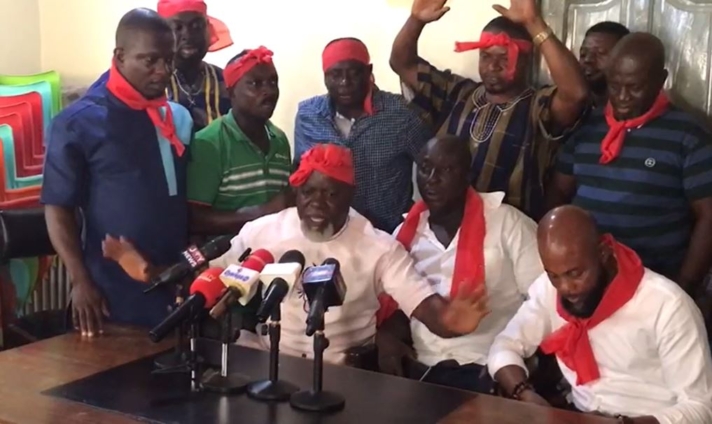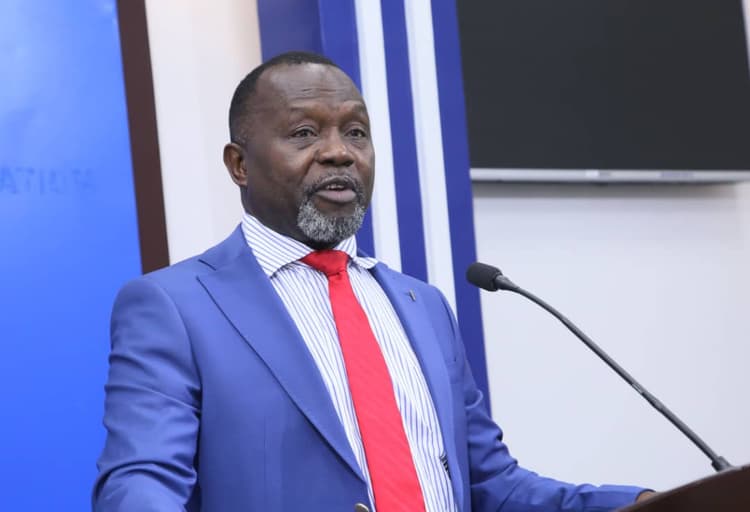The government is ramping up efforts to combat illegal mining, known locally as galamsey, in a bid to reverse mounting environmental degradation and restore the country’s forests and waterways, Lands and Natural Resources Minister Emmanuel Armah-Kofi Buah said Monday.
Speaking at an event marking a donation from the Ghana Gold Board, Mr. Buah signaled a more aggressive and coordinated campaign against unregulated mining operations, which have contributed to widespread deforestation and the contamination of rivers and streams.
“We are determined to ensure that our forests will be green and our water will be blue,” the minister said.
Mr. Buah emphasized that while his ministry is spearheading the crackdown, it is working closely with other state institutions to ensure enforcement efforts have lasting impact. Among them is the Office of the Attorney General, which he said is now directly involved in prosecuting illegal mining cases to ensure offenders are held accountable.
A key element of the government’s renewed strategy includes tighter controls on heavy equipment used in mining. “For eight years, tracking of excavators was virtually non-existent,” Mr. Buah said. “Today, we are working with the Ministry of Transport to geofence all excavators even before they leave the port.”
The use of excavators in illicit mining operations has been a major driver of environmental destruction in Ghana, Africa’s second-largest gold producer. Government officials say the new tracking regime, based on geofencing technology, will serve as a deterrent and enforcement tool.
Mr. Buah described the broader effort as a combination of “enforcement, coordination, and technology,” and said it reflects the government’s renewed political will to stamp out illegal mining, which has long undermined formal mining operations and fueled ecological decline.
Ghana has struggled for years to contain galamsey, with successive governments pledging reform but facing criticism over inconsistent enforcement and allegations of political interference. The latest push marks a more systematic attempt to tackle the problem at both the logistical and legal levels.













